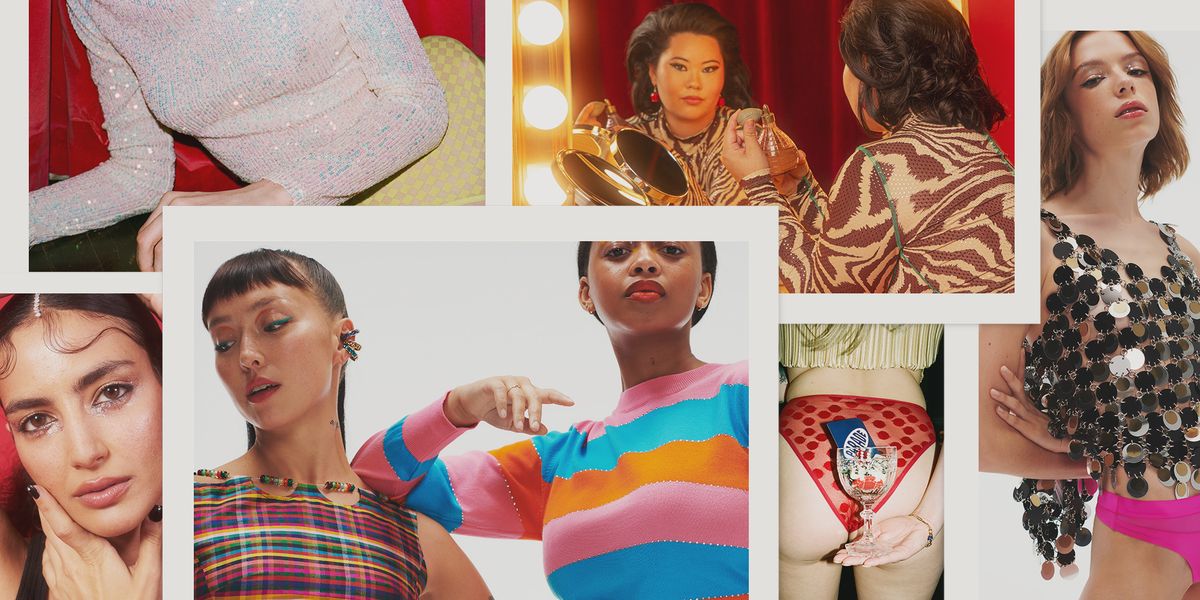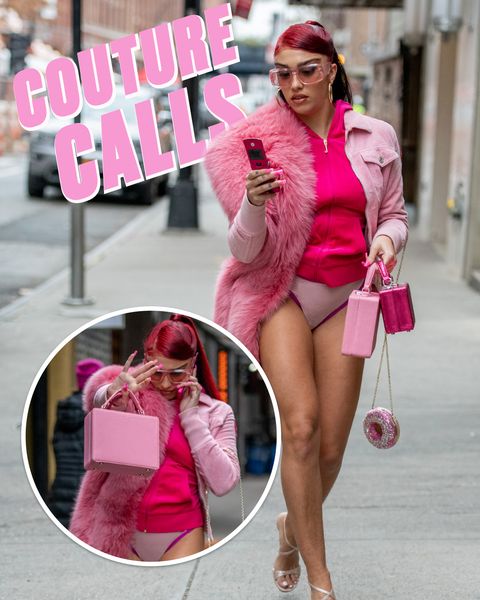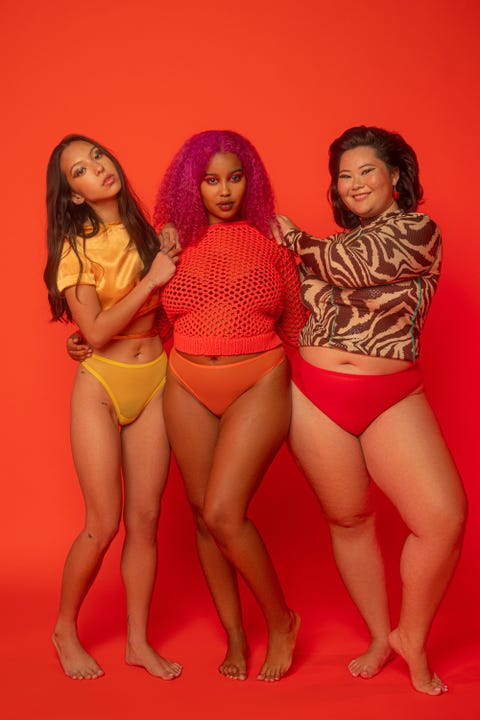Style Points is a weekly column about how fashion intersects with the wider world.
As Congress debated the COVID relief package, a joke ricocheted around Twitter to the effect that our stimulus checks had been bargained down to a pair of Parade underwear. By that point, the ubiquity of the brand, especially on the platform, had become an in-joke in itself. Its colorful wares were a currency of their own, a kind of e-girl Bitcoin. At the very least, the probability that a pair or two might show up in a microinfluencer’s mailbox felt higher than the likelihood of the government getting us paid in a timely manner.
This content is imported from Twitter. You may be able to find the same content in another format, or you may be able to find more information, at their web site.
This content is imported from Twitter. You may be able to find the same content in another format, or you may be able to find more information, at their web site.
While the lingerie campaigns of yesteryear were about models who exuded untouchable perfection (even the ’90’s Calvin Klein ads were a parade of scuzzy-chic seraphim) for several years now, the market has been about relatability over retouching. Despite their varying aesthetics, Aerie, Savage x Fenty, and ThirdLove have all staked their claim to this unfiltered approach: size inclusivity, diverse casting, and a focus on dressing for oneself rather than for a generic male gaze. Parade, which was founded by Cami Téllez and Jack DeFuria in 2019, is among the growing number of brands in this field. Karlie Kloss and Shakira are investors, and Parade raised its profile last month by collaborating with Juicy Couture, a name that its Gen Z target audience probably perceives as retro, complete with a campaign that cheekily evoked tabloid images from the aughts.
For that audience, the lo-fi aesthetic is what sells now. Explains Zoe Cohen, Parade’s head of brand marketing, “People want to see the behind-the-scenes just as much as the finished product.” In fact, Cohen says that they’ve noticed that casual phone snapshots or even blurry videos “almost always get higher engagement on our Instagram feed than our campaign images.” And as at-home loungewear trendlets have risen during the pandemic (tie-dye sweatsuits, fashion UGGs) underwear (especially the fun, colorful, selfie-friendly kind) has reigned supreme.
As for why everyone on Twitter suddenly seems to have it? Cohen admits that “our influencer approach is more inclusive and less curated than many other brands,” and that Parade gifts “widely.” Often, the targets are nano-influencers, people with few followers compared to the big names on the platform. (After all, regular people are the hot new thing in fashion.) “We’ve been really focused on getting our product into the hands of many,” Cohen says, though she claims the people they gift are not contractually obligated to post about the brand. It’s just that, more often than not, they do, leading to Parade becoming a veritable form of Internet clout (albeit much easier to get your hands on than a blue check.) While the practice has raised some questions about micro-influencer compensation, according to a recent New York Times piece, it’s also induced the kind of envy that nets publicity. Parade-related FOMO has become a wry refrain among those who haven’t yet gotten it, like comedian Ziwe Fumidoh:
This content is imported from Twitter. You may be able to find the same content in another format, or you may be able to find more information, at their web site.
And while Instagram rules supreme as fashion’s agora, Twitter, which rewards mordant quips over Face Tuned selfies, has been surprisingly successful for Parade. That seems to have been an intentional strategy. “Parade focuses on self-expression and Twitter is a platform where a particular kind of creator really thrives,” Cohen says. It also, of course, feels like less-tilled ground. We’ve come to expect some level of shilling from Instagram mega-influencers. But your favorite alt comedian on Twitter posting an unfiltered selfie might, in this kind of seen-it-all environment, be a more convincing sales pitch, precisely because you don’t expect that person to be selling you something. As Cohen puts it, “it’s not just for ‘Instagram girls.’”
This content is created and maintained by a third party, and imported onto this page to help users provide their email addresses. You may be able to find more information about this and similar content at piano.io



